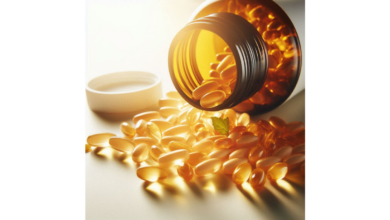Can’t sleep because of saliva

Can’t sleep because of saliva – When you’re tossing and turning in bed, unable to find that elusive slumber, have you ever stopped to consider the role that saliva might play in your sleepless nights? It’s an interesting yet often overlooked aspect of sleep health. You may feel overwhelmed by the thought of battling excessive saliva production, especially when it’s interrupting your sleep. Let’s take a moment to unpack the connection between saliva and sleep, so you can better understand your situation.
Saliva, that often-taken-for-granted fluid, plays several vital roles in our body, from aiding in digestion to ensuring oral health. While most people associate saliva solely with digesting food and keeping the mouth moist, its relationship with sleep can be quite crucial. Think about it: have you ever woken up feeling like you were drooling all night, only to be besieged by the frustration of feeling unrested? You’re not alone in this experience.
The Role of Saliva in Your Body
Saliva is produced by salivary glands, which are influenced by various factors, including your diet, hydration levels, and even your emotional state. Here are some prominent roles that saliva plays:
- Digestion: Saliva contains enzymes that help break down food as soon as it enters your mouth.
- Taste: It helps dissolve food particles, allowing taste buds to perceive flavors more effectively.
- Oral Health: Saliva neutralizes acids and washes away food particles, helping to prevent tooth decay and gum disease.
- Lubrication: It keeps the mouth moist, which is essential for both speaking and swallowing.
Whether you’re dreaming about vacations or fretting over tomorrow’s tasks, the salivary glands are still hard at work. Yet, when these glands produce too much saliva, especially at night, it can lead to discomfort. You may find yourself waking up frustrated, unable to drift off again—this leads us to the crux of our discussion on sleep disruption.
How Saliva Affects Sleep
Understanding how saliva production can disrupt your sleep involves a closer look at the body’s natural processes. Ideally, saliva production decreases when you sleep; however, some people may experience increased salivation during the night, leading to a series of unwelcome effects.
- Comfort: Waking up covered in saliva can become a source of embarrassment and discomfort—it’s hard to relax when you’re worried about a wet pillow.
- Sleep Positions: Certain sleeping positions, like side sleeping, might exacerbate drooling, affecting your quality of sleep.
- Disruptive Patterns: You might find yourself having to wake up to wipe your mouth—or worse, to cough or clear your throat because saliva has pooled, leading to interruptions in your sleep cycles.
Bridging Awareness with Action
Understanding the relationship between saliva and sleep will arm you with the knowledge needed to take action. Awareness is your ally in the pursuit of quality sleep. You might want to consider factors that contribute to excessive saliva production, including potential medical conditions or medications, which we’ll delve into in the subsequent sections of this article. Keep in mind that every body is different, and while you may find that changes in diet, stress management, or adjusting your sleep habits yield positive results, it’s critical to consult a healthcare professional for persistent issues. In the following sections, we’ll explore the causes of excessive saliva production, its impact on your sleep quality, and practical tips for managing it, providing you with a roadmap to reclaim that restful night’s sleep. Let’s move forward together, turning the page on a topic that has kept too many of us up at night.
Causes of Excessive Saliva Production
Understanding the reasons behind excessive saliva production isn’t just about recognizing a nuisance; it’s about gaining insight into what’s happening inside your body. As we transition from the connection between saliva and sleep, let’s delve deeper into the various causes of this condition, focusing on two main categories: medical conditions and medications. By identifying the root causes, you equip yourself with the tools needed to address the issue.
Medical Conditions
Several medical conditions can stimulate your salivary glands to produce an excessive amount of saliva, leading to nighttime disruptions. Some conditions to be aware of include:
- Gastroesophageal Reflux Disease (GERD): GERD can trigger an increase in saliva production as the body attempts to neutralize stomach acid. If you experience heartburn along with drooling at night, this may be a culprit.
- Neurological Disorders: Conditions such as Parkinson’s disease or even cerebral palsy can affect the swallowing reflex, leading to more saliva pooling in the mouth. This can often become problematic during sleep.
- Allergies and Infections: Allergic reactions can cause increased mucus and saliva production as a response to irritants. Cold and sinus infections can also have a similar effect, making you more likely to feel congested and drool during the night.
- Mouth and Dental Issues: Conditions such as oral infections or ill-fitting dentures can irritate the salivary glands, leading them to overcompensate by producing more saliva.
- Pregnancy: It’s not uncommon for pregnant women to experience heightened salivation, particularly during the first trimester. Hormonal changes can mess with the usual salivary production, leading to night-time disruptions.
One time, a friend of mine who was pregnant mentioned how she frequently woke up with a wet pillow. She was initially embarrassed but soon realized she wasn’t alone in her experience. Understanding that her increased saliva production was entirely normal due to her condition helped alleviate some of her anxiety.
Medications and Treatments
In addition to underlying medical conditions, certain medications can also contribute to excessive saliva production. The following are a few categories of medications that may have this side effect:
- Antipsychotics and Antidepressants: These medications can alter neurotransmitter levels in your brain, which might inadvertently stimulate salivary production.
- Cholinergic Drugs: Often prescribed for conditions like Alzheimer’s disease, these medications increase the activity of acetylcholine, a neurotransmitter that stimulates saliva production.
- Nausea Medications: Some antiemetics, particularly those that affect the central nervous system, can cause hypersalivation as a side effect. If you’ve ever taken medication for motion sickness, you might relate to this phenomenon.
- Cancer Treatments: Certain chemotherapy agents can lead to changes in saliva production, whether by damaging the salivary glands or altering reflex pathways that control salivation.
Sometimes, the best way to combat excessive salivation is to inform your healthcare provider about all the medications you’re taking. This can lead to adjustments that may significantly alleviate the saliva production issue. Here’s a quick summary list of medications that can increase saliva:
| Medication Type | Examples | Effect on Saliva Production |
|---|---|---|
| Antipsychotics | Clozapine, Risperidone | Increased saliva |
| Cholinergic Agents | Donepezil, Rivastigmine | Over-stimulation of glands |
| Anti-nausea Medications | Ondansetron, Promethazine | Increased salivation |
| Chemotherapy Agents | Cisplatin, Doxorubicin | Possible gland damage |
It’s essential to note that if you suspect your medications are affecting your saliva production, you should consult with your doctor before making any changes. In many cases, they can suggest alternatives or adjustments to mitigate these side effects.
Moving Forward: Evaluate and Address
Recognizing the causes of excessive saliva is merely the first step. It’s crucial to evaluate your situation in light of these findings and determine whether you might have an underlying condition or if it’s possibly linked to medications you are taking. As we continue our journey through this topic, we will explore how excessive saliva impacts sleep quality in more detail, as well as various strategies for managing this issue effectively. This investigation into the causes will equip you with not just awareness but also a sense of control over what’s affecting your night’s rest. Whether it’s seeking medical advice or reconsidering your current medications, you can take steps to minimize the disruption and improve your overall sleep quality.
Impact of Excessive Saliva on Sleep Quality
As we transition from understanding the causes of excessive saliva production, it’s imperative to explore the ways that this condition can disrupt sleep quality. If you find yourself in a cycle of waking up disoriented, uncomfortable, or embarrassed, you’re not alone. Let’s delve into how excessive saliva can alter your sleep patterns and explore effective strategies for achieving a more restful night.
Disrupted Sleep Patterns
It’s one thing to struggle with sleep due to stress or lifestyle factors; it’s another when a recurring physical issue like excess saliva becomes a barrier to restful nights. Here’s how it commonly manifests:
- Frequent Awakenings: Imagine lying in bed, just starting to drift off, only to be jolted awake by the need to clear your throat or wipe your mouth. These interruptions can prevent you from getting into deeper sleep stages, hindering restorative rest.
- Difficulty Turning Over: When saliva accumulates, you might find yourself reluctant to change sleeping positions. You may cringe at the thought of rolling over only to feel a pool of saliva – which can inhibit the natural urges to adjust your position while sleeping.
- Increased Anxiety: The cycle of waking and feeling uncomfortable may lead to anxiety about falling asleep. You might find yourself lying in bed, tense and counting the minutes until the alarm goes off, instead of finding peace in slumber.
- Poor Sleep Quality: Even if you manage to snooze for several hours, if your sleep is fragmented by the discomfort of excess saliva, you may wake up feeling unrefreshed and groggy. This can impact your physical health, mood, and daily functioning.
I recall a time when I was denied the luxury of a good night’s sleep due to this issue. My nights felt like an endless battle of tossing and turning, and by morning, I was a walking zombie. That experience made me realize how crucial quality sleep is to overall well-being. The impact of excessive saliva on sleep quality is not just an inconvenience; it can significantly affect your daily life, creating a ripple effect on your mood, productivity, and even relationships.
Strategies for Better Sleep
If you’re currently facing the trials of excessive saliva during the night, don’t despair! There are various strategies you can implement to help improve your sleep quality:
- Adjust Your Sleep Position:
- Lying on your back can exacerbate drooling. Instead, try sleeping on your side to help manage saliva accumulation. Investing in a specialized pillow designed for side sleepers can enhance comfort as well.
- Create a Calm Sleep Environment:
- Ensure your sleeping area is cool, dark, and quiet. A soothing atmosphere can potentially reduce the chances of waking during the night due to discomfort. Consider white noise machines or sleep masks to elevate your comfort.
- Stay Hydrated:
- Sometimes increased saliva production is your body’s way of compensating for dehydration. Ensure you drink adequate water throughout the day to maintain balanced hydration levels, but avoid excessive intake right before bedtime to prevent frequent restroom breaks.
- Manage Allergies and Sinus Issues:
- If allergies or sinus infections are contributing to your salivation, consider taking antihistamines or seeking medical advice to treat those underlying issues. Keeping your nasal passages clear through saline sprays can also aid in reducing mucus and saliva production.
- Re-evaluate Medications:
- If you suspect that your medication might be causing excessive saliva production, talk to your healthcare provider about alternatives. A simple review and adjustment of your prescriptions may yield significant relief.
- Consider Oral Hygiene Routines:
- Maintaining excellent oral hygiene can also help manage saliva. Use mouthwash to help with dryness that can lead to excessive production. Some people have found that natural remedies, such as chewing on herbs like parsley or mint, can help freshen the mouth and possibly reduce saliva.
- Consult a Specialist:
- If your struggles persist despite trying these strategies, consider seeking advice from an ENT (Ear, Nose, and Throat specialist) or a dentist. They can provide treatments, recommendations, or even options such as sialogogues—medications that stimulate saliva production.
By implementing these strategies and identifying the causes affecting your sleep, you can reclaim those beautiful, restorative nights without the interruptions of excessive saliva. As we continue to explore the nuances of this condition, remember that understanding your body and its reactions is crucial in managing symptoms effectively. It’s all about finding the right combination of adjustments and remedies that works for you. In the next sections, we will look at practical tips for managing excessive saliva at night, giving you a toolkit to further enhance your sleep experience.
Tips for Managing Excessive Saliva at Night
Having explored the impact that excessive saliva can have on sleep quality and discovered some strategies for better sleep, it’s now time to focus on practical tips you can implement to manage this condition more effectively. This section will cover lifestyle changes and home remedies that can significantly reduce nighttime saliva production, allowing you to enjoy uninterrupted slumber.
Lifestyle Changes
Making certain adjustments to your daily routine can help you combat excess saliva production at night. Here are some impactful lifestyle changes to consider:
- Maintain a Balanced Diet: What you eat can influence saliva production. Reducing acidic and spicy foods can help mitigate irritation that triggers excess salivation. Consider adopting a diet rich in:
- Fruits and Vegetables: Fresh produce can aid digestion and minimize irritation.
- Whole Grains: Foods like brown rice and whole wheat bread can keep you feeling full, which may help minimize snacking at night.
- Lean Proteins: Chicken, turkey, and fish are good choices, as they tend to be easier on your digestive system.
- Limit Caffeine and Alcohol: Both caffeine and alcohol can cause dehydration, which your body may attempt to counter by producing more saliva. Reducing your intake, especially in the hours leading up to bedtime, can help balance your body’s hydration levels.
- Practice Stress Reduction Techniques: High-stress levels can trigger various bodily responses, including increased saliva production. Incorporating relaxation techniques into your daily routine will make a difference. Try the following:
- Meditation: Even just five minutes a day can help center your mind and reduce stress.
- Yoga: This ancient practice helps not only with physical flexibility but is excellent for calming your mind.
- Deep Breathing Exercises: A few minutes of focused breathing can help you unwind and may lessen salivary response.
- Establish a Consistent Sleep Schedule: Maintaining a regular sleeping pattern can help regulate your body’s functions, including saliva production. Aim to go to bed and wake up at the same time every day to build a consistent sleep routine.
- Avoid Late-night Snacking: Eating close to bedtime can lead to increased saliva production, especially if the food is acid-rich. Try to wrap up your meals at least two to three hours before bedtime to help your body prepare for sleep without extra saliva.
Home Remedies
In addition to lifestyle changes, several home remedies can help manage excessive saliva at night. These methods can be simple to implement and effective for many individuals:
- Stay Hydrated: Keeping hydrated throughout the day can help your body maintain a balanced production of saliva. Opt for water over sugary drinks, and aim to consume small, regular amounts to avoid overloading your bladder before bed.
- Chew Sugar-free Gum: Chewing gum can stimulate saliva production temporarily, but once you stop, it can lead to a decrease in saliva over time. Opt for sugar-free varieties to avoid extra calories.
- Incorporate Peppermint or Ginger: Both peppermint and ginger have natural soothing properties. You can sip peppermint tea or chew on fresh ginger to help promote saliva flow and potentially stabilize production.
- Peppermint Tea Recipe:
- Brew a cup of hot water with dried peppermint leaves or a peppermint tea bag.
- Let it steep for 5-10 minutes.
- Enjoy before bed for a calming effect.
- Peppermint Tea Recipe:
- Salty Foods: Sometimes, consuming small amounts of salty foods can help temporarily reduce saliva production. A few pretzels or crackers before bed might help in this regard.
- Essential Oils: Oils like peppermint, lavender, and chamomile can promote relaxation and potentially lessen excessive salivation. A diffuser or a couple of drops on your pillow may transform your sleep environment.
- Breathe Through Your Nose: If you find that you’re breathing through your mouth at night, it may contribute to saliva pooling. Consider using nasal strips or saline nasal sprays to help keep your nasal passages clear and encourage breathing through your nose.
Implementing these lifestyle changes and home remedies can make a world of difference in managing excessive saliva at night. It’s essential to give yourself some grace while experimenting with various approaches. Each person’s body is unique, so what works well for one may not be as effective for another. In my own experience, it took some trial and error to identify the right mix of strategies that worked for me. I found that combining dietary adjustments with stress-reduction techniques provided marked improvements in my sleep quality. As we round off our discussion on managing nighttime saliva, remember to stay patient and proactive. With the right tools and support, you can tackle this challenge effectively, reclaim your nights, and enjoy the restful sleep that you deserve. In the upcoming sections, we will discuss when to seek medical help for saliva-related sleep issues.
When to Seek Medical Help for Saliva-Related Sleep Issues
As we’ve delved into various strategies for managing excessive saliva at night, it’s crucial to recognize when these issues may indicate a more significant underlying problem that necessitates professional help. Sleep disturbances, particularly those caused by excessive saliva, can be more than just a minor inconvenience. Let’s navigate the signs that suggest it may be time to consult a healthcare professional.
Recognizing the Signs
Many people may experience fluctuations in saliva production at some point, but persistent or severe symptoms can be a cause for concern. Here are some signs that indicate you shouldn’t wait any longer to seek medical advice:
- Persistent Nighttime Discomfort: If you frequently wake up feeling uncomfortable or embarrassed due to excessive saliva, and you’ve tried various remedies without any improvement, it’s time to consult a healthcare professional.
- Interference with Daily Activities: When your sleep issues start affecting your daily life—such as your ability to work, drive, concentrate, or maintain relationships—don’t hesitate to seek help. Quality sleep is vital for overall well-being.
- Accompanying Symptoms: The presence of other concerning symptoms can further inform your decision. If you notice any of the following in conjunction with excessive salivation, it’s an indicator to consult your doctor:
- Unexplained weight loss
- Difficulty swallowing
- Frequent heartburn or acid reflux symptoms
- A change in taste or a persistent bad taste in the mouth
- Swollen glands or tenderness in the jaw area
I recall a friend who initially dismissed her excessive salivation as a minor issue. But as time went on, she began to experience other symptoms, like difficulty swallowing and persistent heartburn. She realized it was time to seek medical attention, and it turned out that an underlying condition required treatment.
Consulting the Right Professionals
When you decide to reach out for help, knowing who to consult can make the process smoother. Here are some professionals who can aid in identifying and treating saliva-related sleep issues:
- Primary Care Physician: Start with your primary care provider. They can evaluate your symptoms, perform a basic examination, and refer you to specialists if necessary. They often have a holistic understanding of your health history.
- Ear, Nose, and Throat Specialist (ENT): An ENT is well-equipped to diagnose conditions affecting your salivary glands and may perform procedures to assess your throat and mouth for any abnormalities.
- Gastroenterologist: If you suspect the underlying cause is related to gastrointestinal issues, a gastroenterologist may be able to help. They specialize in disorders of the digestive system and can determine if issues like GERD are impacting your salivation.
- Dentist or Oral Surgeon: If you believe dental issues might be a factor, do not hesitate to visit a dentist. Ill-fitting dentures, gum disease, or other oral health issues can exacerbate saliva problems.
- Neurologist: If you suspect a neurological issue may be involved, consulting a neurologist might be beneficial, especially if you experience additional symptoms related to coordination, movement, or sensory function.
What to Expect During a Visit
When you schedule an appointment to discuss your saliva-related sleep issues, it’s helpful to come prepared. Here are tips on making the most of your visit:
- Document Your Symptoms: Keep a log of your symptoms. Note when they occur, their severity, and how they impact your sleep. This information can help your doctor understand your situation better.
- List Medications: Provide a list of all medications and supplements you are taking. This can help the doctor identify any potential side effects that may be contributing to saliva production.
- Discuss Lifestyle Factors: Be open about your diet, stress levels, and lifestyle habits. This information will be crucial for your doctor in assessing the root cause of the problem.
- Ask Questions: Don’t hesitate to ask questions. If given a diagnosis or treatment plan, make sure you clearly understand the next steps and any follow-up required.
- Explore Treatment Options: Based on your diagnosis, your doctor may suggest treatment options ranging from lifestyle changes to medications or even therapies tailored to your unique needs.
Seeking medical help is a courageous step towards regaining your comfort and improving your quality of life. Remember, you’re not alone in this journey, and professional support can make all the difference. As we wrap up this discussion, keep in mind that your health and well-being are paramount. Don’t let the struggle with excessive salivation at night diminish your quality of life. Whether through lifestyle changes or medical interventions, you deserve restful nights and rejuvenating sleep. Ultimately, taking action now can lead you to the peace of mind and health you seek.
You might also find this article helpful Happy Healthy and Whole : The Power of Positive Habits





